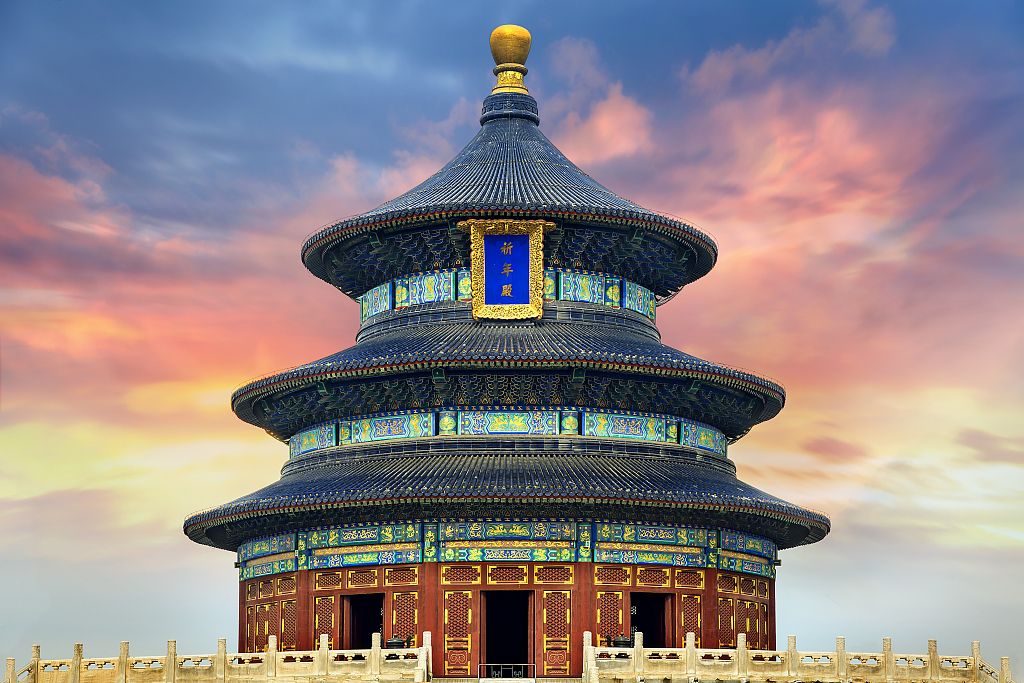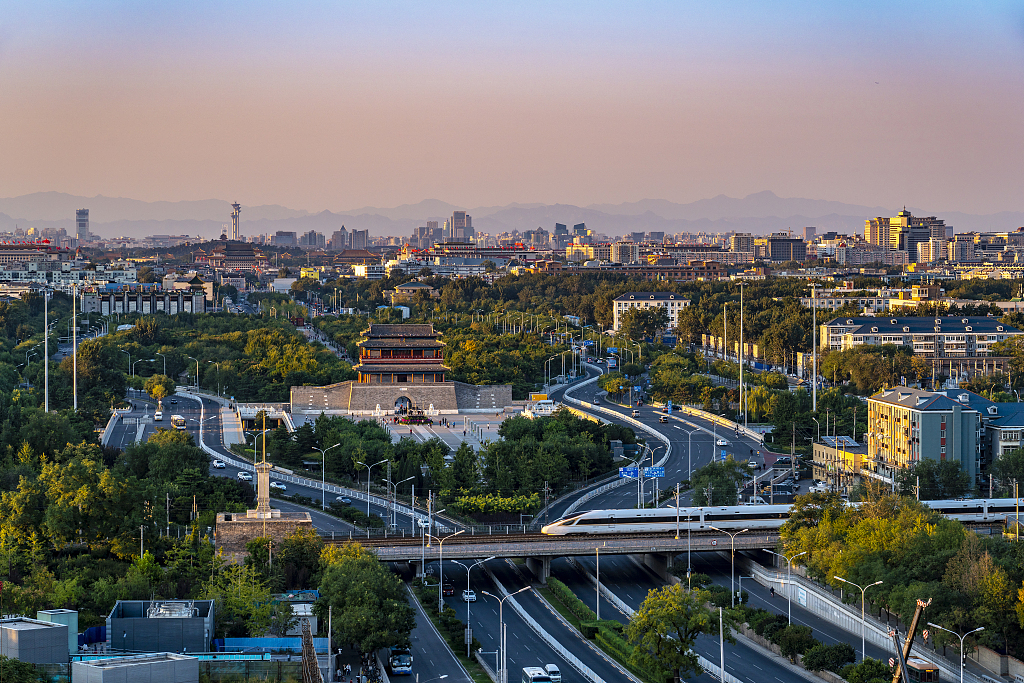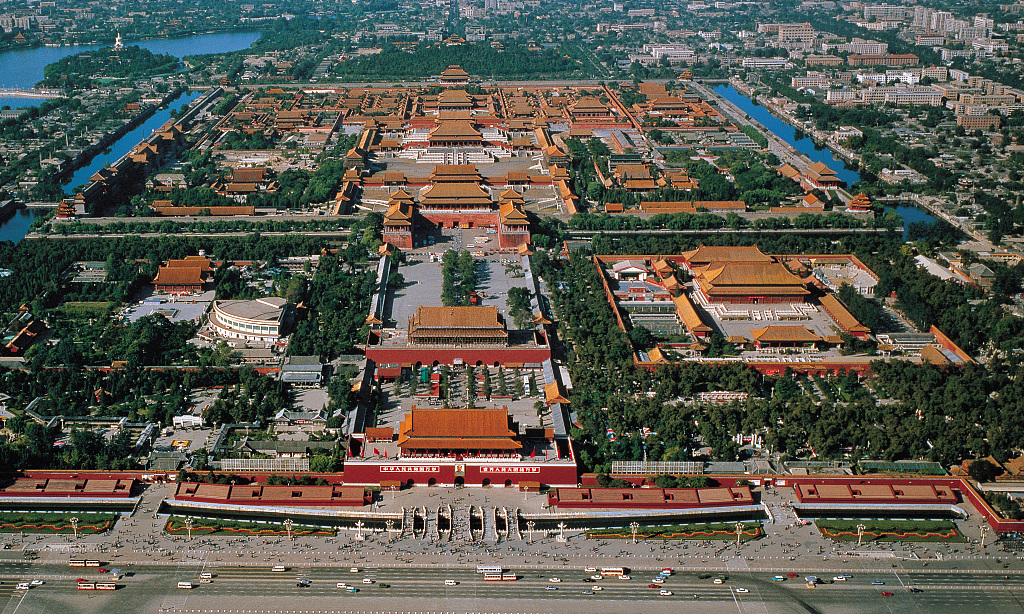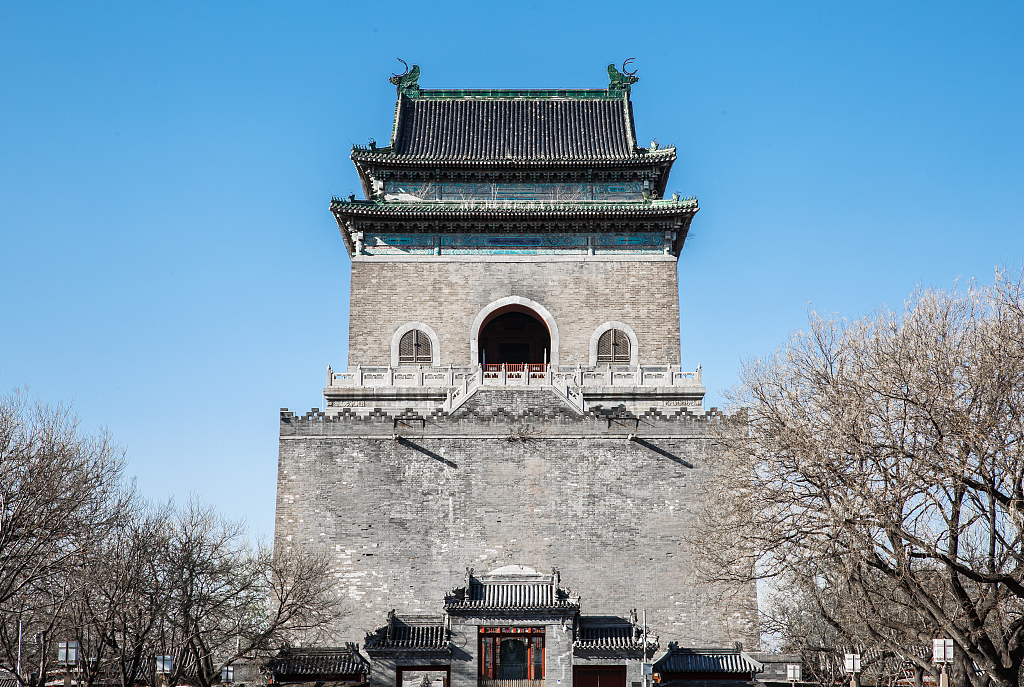
The Temple of Heaven on the Beijing Central Axis. /CFP
The Temple of Heaven on the Beijing Central Axis. /CFP

The Yongding Gate on the south end of the Beijing Central Axis. /CFP
The Yongding Gate on the south end of the Beijing Central Axis. /CFP

The Forbidden City on the Beijing Central Axis. /CFP
The Forbidden City on the Beijing Central Axis. /CFP

The Bell Tower on the north end of the Beijing Central Axis. /CFP
The Bell Tower on the north end of the Beijing Central Axis. /CFP
The central axis of Beijing, which is adorned with numerous cultural relics and historic buildings in a straight north-south line, is considered the backbone of China's capital.
Stretching over a distance of 7.8 kilometers, the Beijing Central Axis has been a witness to the rich history of China since the 13th century. This remarkable path extends from the Drum Tower and Bell Tower in the north to the Yongding Gate in the south. Along this axis lie three World Heritage sites, namely the Forbidden City, the Temple of Heaven, and the Jinghang Grand Canal.
The central axis serves as a splendid manifestation of China's principle of "respecting the middle" in urban construction. It stands as a testament to Chinese civilization, encapsulating essential aspects of Chinese culture, such as the harmonious relationship between humankind and nature, as well as the virtue of adhering to order.